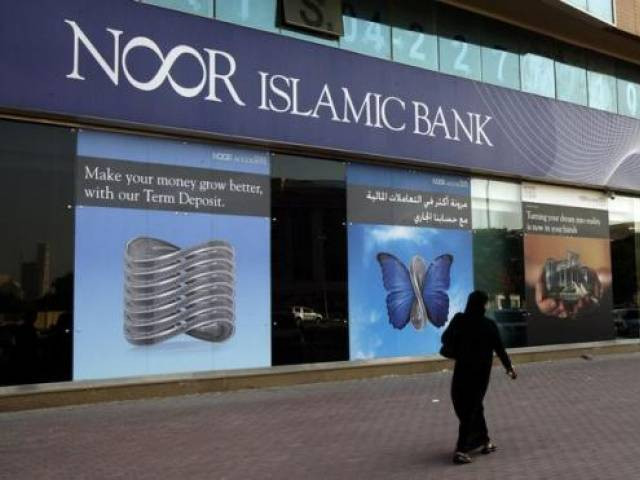Job opportunities for women in Islamic banks
Apart from few professions, women are not visible in financial services

PHOTO: REUTERS/FILE
Women are increasingly becoming visible and economically active, although they own only 3% of businesses in the country. However, apart from few professions, like education and health, women are still not so much visible in financial services but it is perhaps a matter of choice and not a result of some deliberate discrimination or misogyny.
The best and worst places in the world to be a working woman
In the Islamic banking sector of Pakistan, women representation is rather low.
London-based quarterly Islamic finance magazine, ISFIRE recently conducted a global survey to find reasons for low employment of women in the over $2 trillion global Islamic financial services industry.
Leadership in Islamic finance
Contrary to a view promoted by some people that Islamic banking and finance (IBF) discriminates against women, the industry offers ample opportunities to smart and intelligent women.
According to Stella Cox, Managing Director of DDCAP and a veteran in IBF, it may in fact be easier for women to excel in IBF. Perceiving or portraying IBF to be anti-women is at best primitive thinking. The industry has in many cases endogenised cultural sensitivities of non-Muslim female personnel to ensure that they are provided with a level-playing field.
KFH Research former managing director and vice chairman Baljeet Kaur Grewal symbolised this trend before she left her previous job.
Survey on female employment
The survey asked just one question through social media. There were 10,337 responses from 33 countries of the world. The question asked was: Why has there been low female employment in IBF?
The survey results confirm that the low female employment in IBF is not due to any systematic bias but it is rather owing to some other socio-economic factors. The main reason is the low female participation in the labour force, as suggested by one-third of the respondents.
Moreover, women themselves do not prefer banking and finance, in general, as a viable profession for them.
Male dominance in banking and finance (including IBF), dress code for women, and lack of availability of suitable academic and professional qualifications are major barriers to entry for women. These three factors collectively account for one-third of the reasons for low participation of women in IBF.
Levelling the playing field: Female government job quota to be increased to 7%
However, those working in financial institutions put less emphasis on the barriers to entry, as evidenced by the response of respondents who are currently in the financial services industry.
Some 81% respondents say that low female participation in the labour force and women’s own preference away from financial services are main reasons for the low employment of women in the sector.
This is obviously a view against 53% of those not working in the financial sector (including those out of jobs), who consider the above-mentioned barriers to entry as the main reasons for lack of employment of women in IBF. Women believe even more that there are real barriers to entry for them (59%).
More than half of the respondents (57%) from Pakistan are of the opinion that barriers to entry exist for women participation in IBF.
These results clearly suggest that there are barriers to entry into IBF, however, the factors responsible for women-specific barriers to entry must further be scrutinised.
An overwhelming majority of respondents in the global sample reject the hypothesis that there are real and credible barriers to entry into IBF for women. Slightly over one-quarter respondents recognise these barriers.
No discrimination
Employees of Islamic banks and financial institutions do not believe that women have faced any kind of discrimination in matters related with employment and human resource development. If this view is correct, then the question arises why women are not interested in working for Islamic financial institutions.
There seems to be a grudge effect when it comes to the responses of those who are not working for Islamic financial institutions, the unemployed and the female, as they tend to believe that there are definite entry barriers for women. Pakistanis also tend to put weight on their side.
The ISFIRE report concludes by asserting that there is no evidence of any systematic discrimination against women in IBF and that there are no credible barriers to entry. However, there is a need to encourage more representation of women in IBF in countries like Pakistan, Bangladesh, Indonesia and Turkey where women in the sector are the least visible.
The writer is an economist with PhD from the University of Cambridge
Published in The Express Tribune, April 4th, 2016.
Like Business on Facebook, follow @TribuneBiz on Twitter to stay informed and join in the conversation.



















COMMENTS
Comments are moderated and generally will be posted if they are on-topic and not abusive.
For more information, please see our Comments FAQ